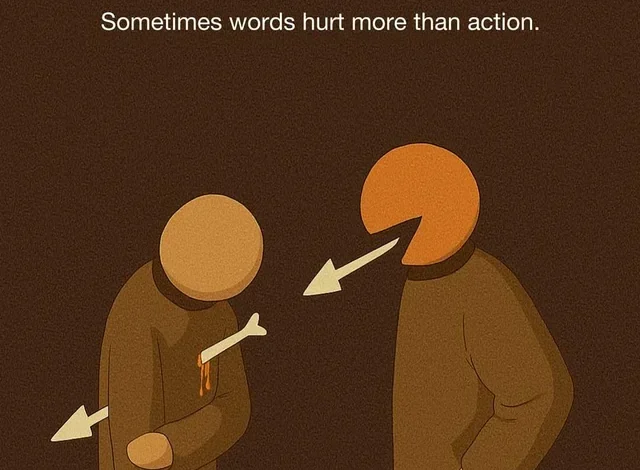Words have power. They can either heal or hurt, deepen a connection, or create a divide.
But what happens when those words turn into labels—sharp, stinging ones meant to wound?
Name-calling in relationships often begins as a reaction in moments of anger or frustration. Yet what may seem like a fleeting outburst can leave lasting emotional scars. It bruises trust, damages self-esteem, and builds walls where bridges once stood.
Healthy relationships thrive on mutual respect, kindness, and emotional safety. When name-calling becomes part of communication, those foundations begin to crumble.
What Is Name-Calling in Relationships?
Name-calling is more than an exchange of harsh words—it is a form of verbal and emotional abuse that attacks a person’s identity rather than addressing behavior or feelings (Pace, 2025).
It can appear as overt insults (“You’re stupid!”) or subtler, sarcastic jabs disguised as humor (“Relax, you’re so sensitive”). Regardless of tone, the message undermines dignity and respect.
According to relationship expert John Gottman, contemptuous language is one of the most destructive forces in a relationship (Gottman, Silver, & Summerer, 2020). Contempt communicates disgust or superiority instead of empathy, sending the message that one partner is “less than.” Over time, this corrodes trust and intimacy—the emotional glue of partnership.
The Psychology Behind Name-Calling
Why do people resort to name-calling?
Psychologist Harish Parvez (2024) explains that it often stems from insecurity, power struggles, and low emotional intelligence. When individuals feel powerless, they may lash out with hurtful words to regain a false sense of control.
This behavior can also be a learned response—those raised in environments where conflict involved insults may unconsciously repeat the pattern.
In some cases, name-calling reflects displaced aggression—projecting one’s inner frustration onto another. As Parvez (2024) notes, “What they call you is likely what they’re struggling with.”
Others may mask cruelty as humor, using jokes to demean and then claiming, “I was only kidding.” This minimizes accountability and invalidates the other person’s hurt (Evans, 2010).
The Cost of Hurtful Words
Research and clinical experience show that name-calling harms both mental health and relationship stability. Below are some of the most damaging effects (Pace, 2025):
-
Erodes trust: Every insult chips away at emotional safety and intimacy.
-
Damages self-esteem: Repeated labels can lead to shame and self-doubt.
-
Creates emotional distance: Partners withdraw to protect themselves.
-
Breeds resentment: Harsh words may be forgiven but rarely forgotten.
-
Escalates conflict: Contempt replaces problem-solving with defensiveness.
-
Normalizes disrespect: Over time, cruelty begins to feel “normal.”
-
Undermines mental health: Verbal abuse is linked to anxiety, trauma, and long-term distress.
In short, name-calling doesn’t just damage a relationship—it reshapes the emotional and psychological landscape of those within it.
Why Respect Matters More Than Being Right
As Gottman et al. (2020) emphasize, lasting relationships are not built on avoiding conflict but on managing it with respect. Disagreements are inevitable, but when partners replace empathy with insults, the focus shifts from resolving problems to asserting dominance.
Only licensed clinical psychologists, counselors, or therapists who have completed the necessary education, clinical hours, and requirements are qualified to diagnose, using appropriate and validated assessments. The American Psychological Association (2017) emphasizes that ethical communication involves dignity, compassion, and sensitivity to emotional impact. This principle similarly applies to relationships, where healthy communication requires treating others with care, even during moments of frustration.
Instead of saying, “You’re so selfish,” try, “I feel unheard when my needs are dismissed.”
This small shift—from accusation to expression—preserves connection while addressing the issue. Respectful language is not weakness; it’s emotional maturity.
What Name-Calling Reveals About Emotional Intelligence
Adults who resort to insults often struggle with emotional regulation and empathy. According to Evans (2010), verbal abusers tend to externalize blame, believing the other person “deserves” their anger. This prevents introspection and perpetuates harm.
Those with higher emotional intelligence pause before reacting. They use “I” statements, practice mindfulness, and seek to understand rather than wound. Learning to manage conflict without verbal aggression is not only a relationship skill—it’s a mental health skill.
Breaking the Cycle: From Hurt to Healing
If name-calling has become a pattern in your relationship, healing begins with awareness and accountability. Recognize that the words used in conflict shape the emotional climate of your home. Choose pauses over put-downs. Choose compassion over control.
Practical steps for couples:
-
Pause before responding. Take a breath or short break when emotions rise.
-
Use “I feel” statements. Express emotions without blame.
-
Seek couples therapy. A professional can guide communication repair.
-
Set clear boundaries. Let your partner know insults are unacceptable, and model that same respect.
If you are the one being called names, remember—it’s not your fault. No one deserves to be diminished or humiliated. Verbal abuse is never a sign of love; it’s a symptom of pain that needs healing.
Love Heals When Words Do
Words are the foundation of how we love. They can either tear down or lift up. As Gottman wisely notes, “It’s not the presence of conflict that ends relationships—it’s the absence of respect.”
When partners choose gentleness over cruelty, understanding over accusation, and love over ego, they begin to rebuild trust. The choice to speak kindly—especially in anger—is not just an act of restraint; it’s an act of love.
The next time frustration rises, pause before responding. Ask yourself: Will my words build connection—or destroy it?

If you’re ready to find calm beneath the chaos, visit inner-peace.health to get started.
 Need Support?
Need Support?
If you’re struggling with anxiety, comparison, or self-esteem, we’re here to help.




References
American Psychological Association. (2017). Ethical principles of psychologists and code of conduct. https://www.apa.org/ethics/code
Evans, P. (2010). The verbally abusive relationship: How to recognize it and how to respond. Adams Media.
Gottman, J., Silver, N., & Summerer, E. (2020). The seven principles for making marriage work. Tantor.
Parvez, H. (2024, November 21). The psychology behind name-calling. PsychMechanics. https://www.psychmechanics.com/psychology-behind-name-calling/
Pace, R. (2025). 15 reasons not to resort to name-calling in a relationship. Marriage.com. https://www.marriage.com/advice/communication/name-calling-in-a-relationship/




